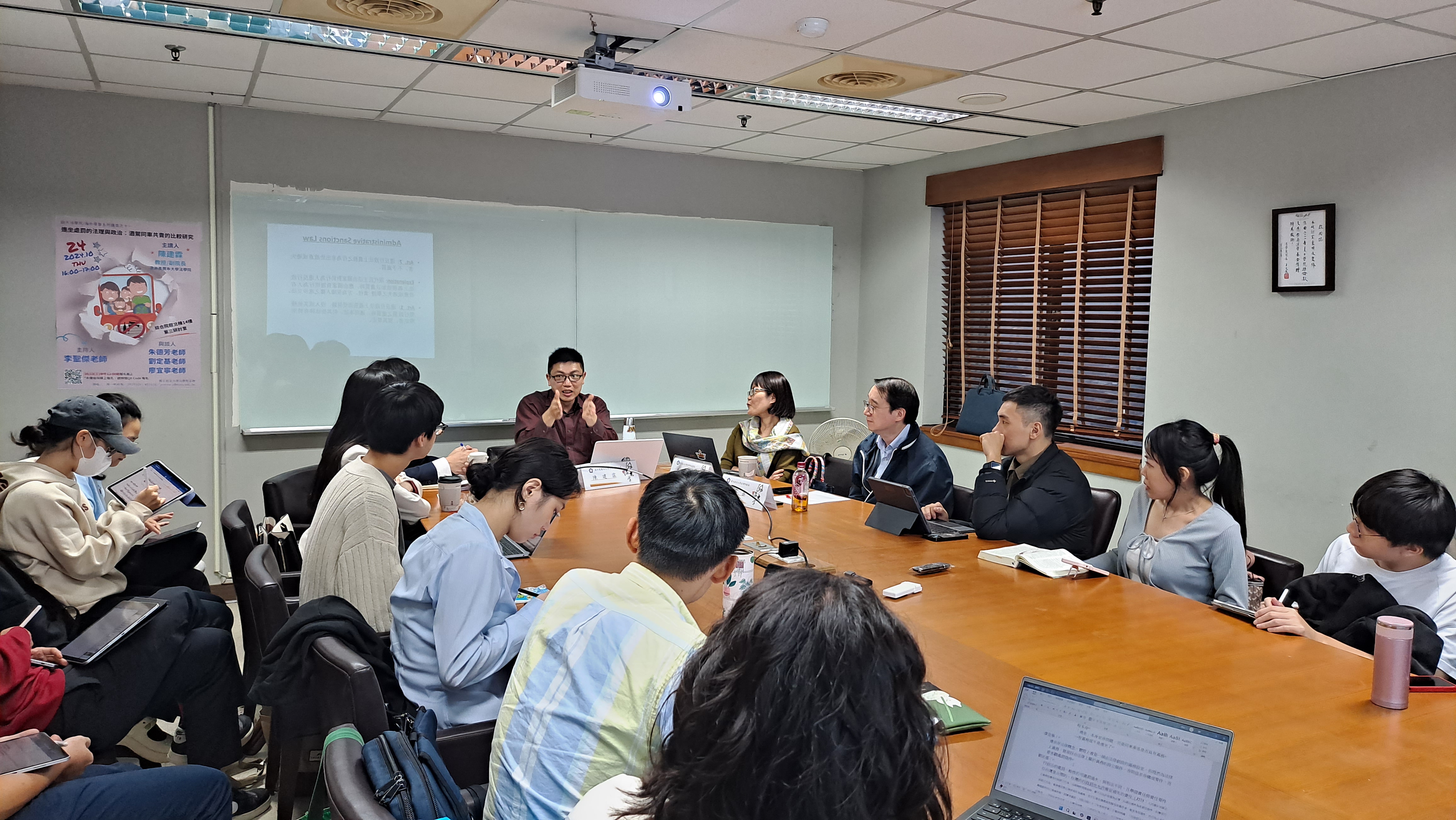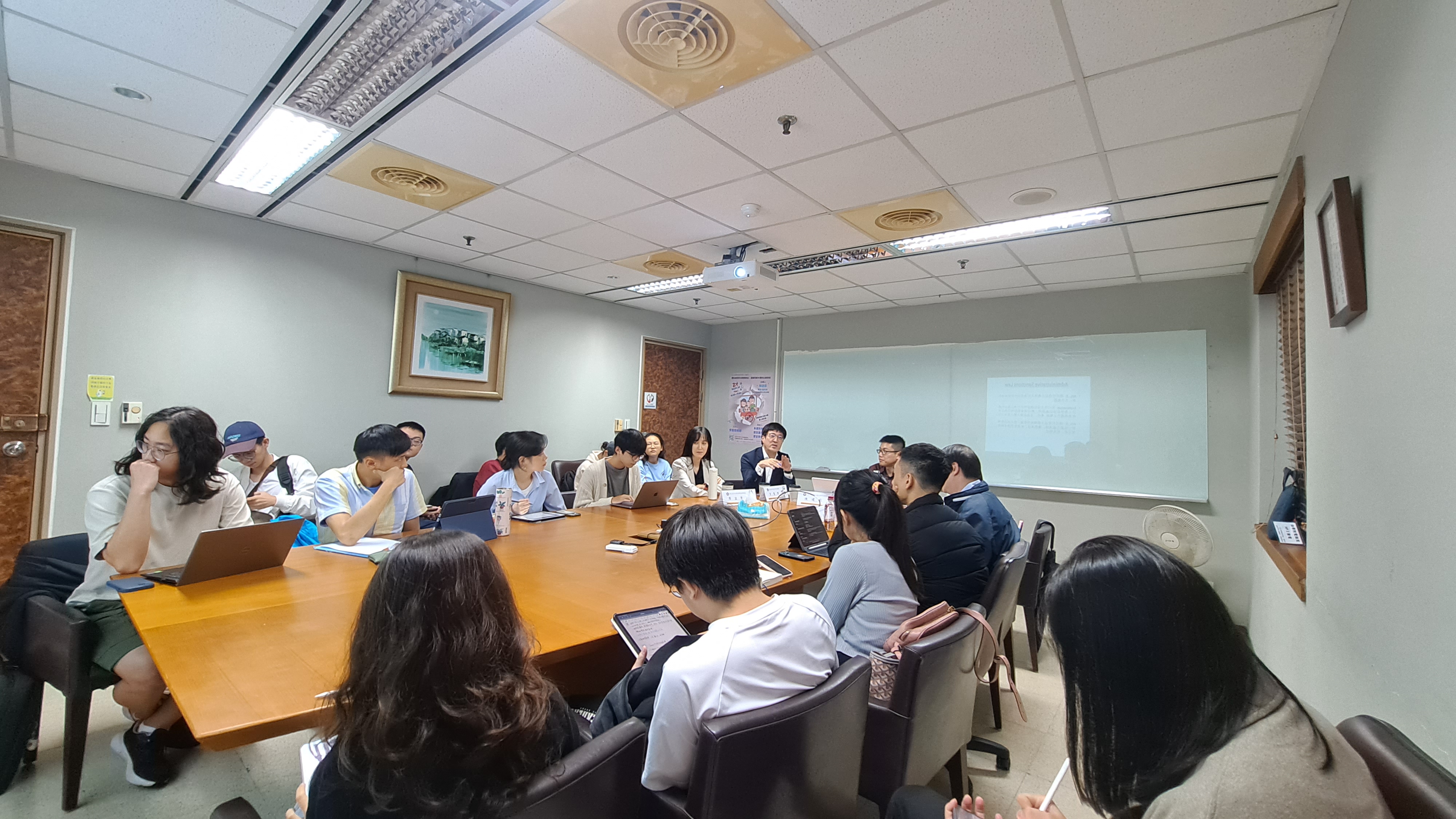In his lecture, Professor Chen explored the internal contradictions of administrative law and penalties, using Taiwan’s joint liability in drunk driving cases as a backdrop. He analyzed how the punitive approach reflects political considerations, helping faculty and students understand the rationale behind Taiwan’s regulatory framework.
Observing Article 35 of Taiwan’s Road Traffic Management and Penalty Act, a key issue emerges: passengers are penalized even if unaware of the driver’s intoxication, leading to controversy. Four distinct rulings in Taiwan highlight this debate, which originated from legislative gaps. While legislators initially supported penalizing co-riders only if they knew the driver was intoxicated, the Ministry of Transportation ultimately removed the intent requirement.
Professor Chen noted that past inter-agency discussions intensely debated the burden of proof, pointing out that the legislative reasoning behind Article 7 of the Administrative Penalty Act mandates that the state must prove a violator's intent or negligence. He criticized the approach of detailing this requirement only in the legislative rationale without directly specifying it in the statute.
Returning to the primary issue, Professor Chen stated that without a duty, legal punishment is challenging to justify. Penalizing co-riders inherently suggests that they should ensure the driver is not intoxicated. He argued that the core question is whether co-riders hold such a duty, rather than delving solely into joint liability.
Assistant Professor Yi-Ning Liao expressed appreciation for the lecture, emphasizing that joint liability is not a legal concept but a creation of duty, placing co-riders as independently responsible for their actions. She proposed that if the rule were interpreted constitutionally, subjective intent—either intentional or negligent—would be a necessary element. If treated as an objective condition for punishment, however, the rationale would be unfounded. She also clarified a misinterpretation of the proverb “Severe laws for turbulent times,” indicating that harsh laws are a response to chaos, not a solution.
Professor Ting-Chi Liu distinguished administrative penalties from criminal law, noting that administrative penalties can assume negligence, a concept approved by Taiwan’s Constitutional Court. He argued that the issue lies in whether imposing this duty on co-riders is overly burdensome or unconstitutional. Focusing solely on joint liability or the burden of proof risks distracting from this core issue.
Professor Te-Fang Chu, who contributed to Taiwan’s corporate law amendments, agreed with the influence of social context on legislation. He observed that foreign agencies rigorously seek feedback during legislative amendments, allowing legislators to provide input. Professor Chu suggested that Taiwan could improve its legislative process.
Associate Professor Sheng-Chieh Lee highlighted the importance of examining the legitimacy of laws in fostering fair legislation. He encouraged students to actively participate, discuss, and inquire about study opportunities at the University of Melbourne. Professor Lee hopes that Professor Chen’s return visit next year would offer an information session on dual degree programs and study abroad options for law students.




